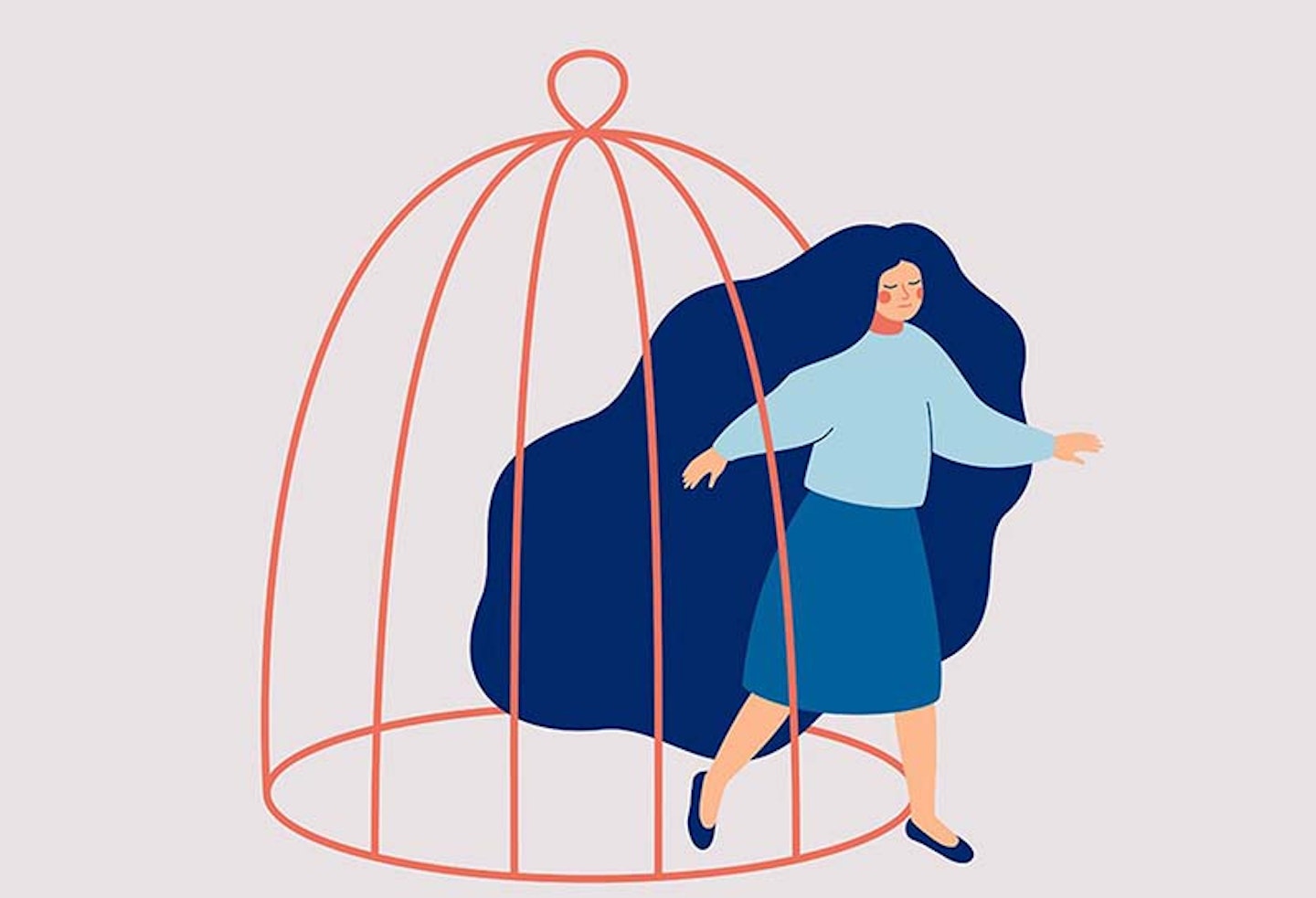As lockdown lifts it brings longed-for opportunities to see friends and family, play sports, visit favourite shops or restaurants and get back to our normal lives and routines.
It’s easy to assume that we’d just be able to switch. It’s a breath of fresh air, we’re getting back out again and things are a little bit more normal and we should be our best selves - right? Or that’s how it appears that it should be, but it’s not always the case.
Now that we’re coming out the other side of lockdown and things are feeling a bit more normal it’s absolutely understandable that we’re exhausted – of course we’re exhausted – and we’re not quite sure how to deal with all of these new things we’re suddenly being faced with.
We’ve all endured so much over the past year or so, we’ve lost the things that are important to us, we’ve lived a very strange life that’s very limiting, very uncertain, very frightening, and we’ve had no choice but to accept that.
We’re coming out of lockdown and realising just how much we’ve bottled in and held on and suppressed because there was no way of doing anything other than that. We had no choice but to live in this 'new normal'. To try to keep calm and carry on.
And just what does this post-lockdown world look like? When will it feel normal to hug again, to be in groups or large crowds, to make plans, to travel? We may be coming out of this suppressive and solitary place we’ve all been in but we’re still faced with so much uncertainty. So, if you feel anxious or feel like you’re struggling, you are not alone.
How to look after your mental health
According to the Mental Health Foundation, “it’s important to acknowledge that these feelings are reasonable, and to expect them. It’s only by building up tolerance gently that we can move through these fears.
“If possible, take things at your own pace – but try and challenge yourself to try something different each day or every couple of days. It’s very easy to allow the seclusion that was necessary in lockdown to become deliberate isolation as lockdown ends.”

1. Pace yourself
You need to go at the right pace for you. Don’t let others pressure you into doing things you don’t want to – but try not to let that be an excuse not to push yourself, especially when it comes to reconnecting with friends safely, outside your home.
Vary your routines so that you see different people and encounter different situations. If one supermarket makes you nervous, try another. If a walk at one time of the day is very busy, try mixing walks at busy times with walks at quieter times.
Mental health charity Mind reminds us, “There's no 'normal' response to changes to lockdown. Your feelings may be affected by lots of things that are out of your control.
“Your feelings might change. You might feel one way one day, and another way the next. It might not feel logical.”
2. Maintain positive habits
At the onset of the coronavirus many of us prioritised looking after our mental health and wellbeing at home. You may have started cooking more, eating healthily or exercising.
Now we’re going back out into the world, it’s important the we continue to prioritise self-care. This includes sticking with any hobbies or interests you got into during restrictions – these positive habits will help to keep you feeling healthy and well.
3. Practice mindfulness
Being in the present moment rather than worrying and focusing too much on the path ahead of you – known as practising mindfulness – can help you manage feelings of stress and anxiety. Remember you can only do your best with what you have today. It may help you to take breaks from the news and media. Mindfulness meditation is another useful way of bringing your mind back to the present moment.
There is a lot happening beyond our control at the moment, so focus on what you can control. Try to record and appreciate good things as they happen as well as taking opportunities to reset and relax.
4. Talk
Interacting with others can help us get out of our head and boost our mood. Don’t dismiss your concerns or judge yourself too harshly. Whether it’s reaching out to friends and family, neighbours and co-workers, or even finding your tribe online, share how you’re feeling with people you trust.
Also don’t hesitate at seeking professional help when you need to. Above all, remember it’s ok not to be ok.
Read more popular articles
Self-care tips to help reduce stress and improve your happiness
